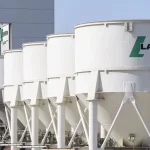President Bola Ahmed Tinubu’s administration has shifted its focus to deregulating the oil and gas sector, rather than reducing petrol prices in the short term.
This development was revealed by Senior Special Assistant on Public Affairs, Aliyu Audu during an interview with Channels Television.
According to Audu, the government is committed to promoting alternative energy sources, particularly Compressed Natural Gas, to reduce Nigeria’s dependence on petrol.
This initiative is part of the administration’s long-term plan to address the country’s energy challenges.
The government’s decision may come as a disappointment to many Nigerians who were expecting a reduction in petrol prices, especially after the Naira-for-crude deal with Dangote Refinery. Currently, petrol prices range between N950 and N1,300 per liter, varying by location.
Nigeria’s inflation rate has continued to soar, reaching 32.15% in August 2024, with food inflation hitting 37.52%. The high cost of living has put immense pressure on citizens, who are seeking relief from the government.
The Tinubu administration has urged Nigerians to be patient as it implements its long-term economic plan.
The government believes that its focus on deregulation and alternative energy will ultimately benefit the country, despite the short-term challenges.
The development has sparked debate among experts, who are divided on the effectiveness of the government’s approach. While some argue that deregulation is necessary for Nigeria’s economic growth, others believe that the government should prioritize short-term relief for struggling citizens.
“It shows commitment on the part of Mr President Tinubu in terms of deregulating the petroleum sector.
” It doesn’t look like even with the Naira-for-crude scheme the price of petrol will come down a whole lot.
“Even though that is what Nigerians want to hear, the reality is that we have to seek opportunities to power our vehicles. That is why the government is keen on the CNG initiative,” Audu stated.


